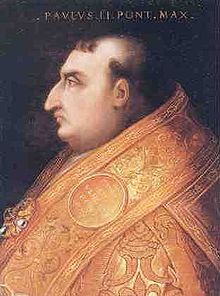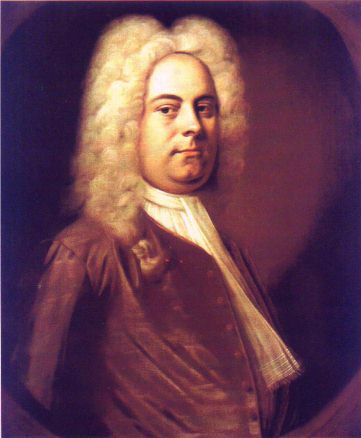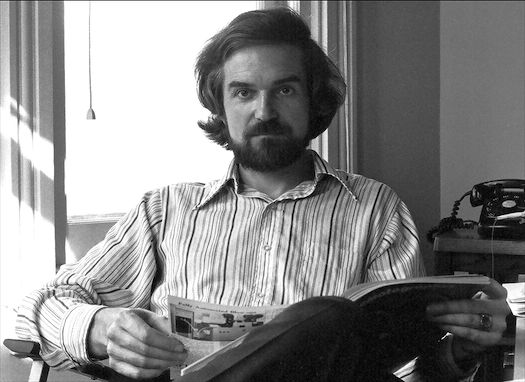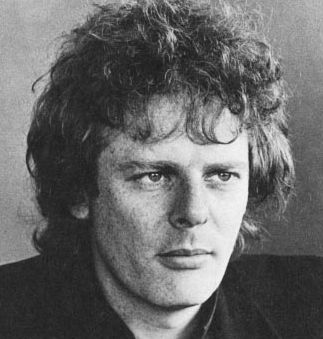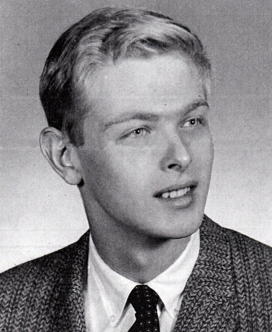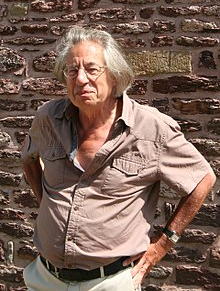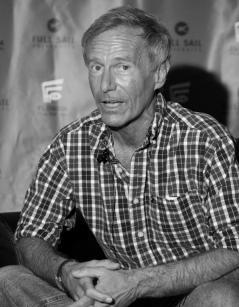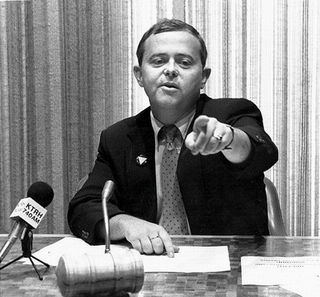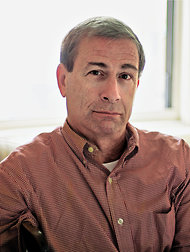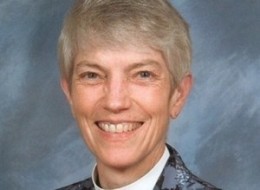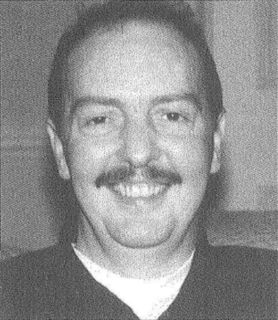|
presents THIS DAY IN GAY HISTORY based on: The White Crane Institute's 'Gay Wisdom', Gay Birthdays, Gay For Today, Famous GLBT, glbt-Gay Encylopedia, Today in Gay History, Wikipedia, and more …
Collected by Ted February 23 [{(o)}]|[{(o)}]|[{(o)}]|[{(o)}]| [{(o)}]|[{(o)}]
1417 – Pope Paul II was born on this date (d.1471). Exceptionally vain - and not without good reason, since he was, in his youth, a very good-looking man - Paul wanted to take the name "Formosus I," i.e. the Well-Shaped, upon his election. Any name chosen would have been better than the one given him sarcastically by his successor, Pius II - "Maria Pietissima," - Our Lady of Pity, supposedly from his likelihood to cry if he couldn't get what he wanted. Some historians have suggested the nickname may also have been an allusion either to Paul's propensity to enjoy dressing up in sumptuous ecclesiastical finery, or possibly a lack of masculinity reflecting possible homosexuality. Paul died suddenly of cardiac arrest on 26 July 1471. Officially death was said to have been brought on following indigestion from eating melon; although a popular legend suggested that he had in fact died whilst being sodomized by a page boy.
1685 – Georg Friedrich Handel, German/British Baroque composer (d.1759). Handel is widely known for certain of his flashier instrumental pieces such as the Water Music (1717) and Royal Fireworks Music (1749), as well as the large-scale English oratorios with soloists and chorus, above all Messiah (1742). But his prolific output includes many other instrumental works, cantatas, and numerous operas in Italian, some of which, such as Giulio Cesare (1724), attract considerable interest today. Of the German composer who anglicized the spelling of his name upon moving to England, a contemporary wrote: "His social affectations were not very strong; and to this it may be imputed that he spent his whole life in a state of celibacy; that he had no female attachments of another kind may be ascribed to a better reason." Was that "better reason" homosexuality? Given Handel's exalted status and the unwritten rule that no star in the classical galaxy may be homosexual, least of all the composer of Messiah, it is hardly surprising that scholarly investigation into Handel's personal life, particularly his sexuality, has met with resistance. In Handel's case, homosexual panic set in early: even biographers in his own time appear troubled about this celebrity's apparent lack of interest in women, the more so since he never came anywhere close to marriage but did spend a great deal of time in private, all-male social circles. That Handel himself maintained strict silence about his private life only fueled suspicions of homosexuality, leading scholars and critics over the years to a general "don't ask, don't tell" policy. Especially important in this regard is a set of cantatas—works for various combinations of solo voices with instrumental accompaniment. These largely ignored pieces, written for and in the company of private circles of mainly homosexual men, and which (significantly) Handel never published, give rich expression to the pleasures and dangers of same-sex love. Standing in opposition to the religious view of homosexuality as sin (sodomy), and the political view of homosexuality as exotic threat to the British nation, these texts connect with the classical pastoral tradition in which male same-sex erotic desire is both idealized and celebrated. It is also significant that when a series of crackdowns on the burgeoning and increasingly open homosexual subculture of London began in the 1730s, Handel reworked many of these texts from which he had borrowed liberally over the years. In so doing, he sanitized them of their more obvious homosexual content.
While teaching English, he submitted an article on Alfred Hitchcock's Psycho to the celebrated French cinema journal "Cahier du Cínema". Wood championed a morally committed, ethical approach to criticism which only became more acute and pointed when he came out as a Gay man in the 1970s. His writings were meant "To contribute, in however modest a way, to the possibility of social revolution, along lines suggested by radical feminism, Marxism and Gay liberation." The turning point in Wood's philosophical views can arguably be pinpointed in his essay "Responsibilities of a Gay Film Critic", originally a speech at the National Film Theater and later printed in Film Comment magazine in 1978. It was subsequently included in the revised edition of his book Personal Views . But his chief fascination, and his reputation, was Alfred Hitchcock. "A lot of people thought it was ridiculous, this idea of taking Hitchcock seriously," he said. "He was seen simply as an entertainer; one was merely amused by his films...a few shocks, a few laughs and that was it." But to Wood, Hitchcock was more. "I think the best of Hitchcock films continue to fascinate me because he's obviously right inside them, he understands so well the male drive to dominate, harass, control and at the same time he identifies strongly with the woman's position." Many of his students, including underground filmmaker and porn star Bruce LaBruce, have gone on to notable careers. Wood had been married and fathered three children. He died of complications of Leukemia and was survived by his partner, Richard Lippe.
1933 – Adolf Hitler’s government launches the Nazi persecution of homosexuals with directives to close gay and lesbian clubs, ban pornography and homophile publications, and dissolve homosexual rights groups.
1938 – Paul Morrissey, born in New York City, is an American film director, best known for his association with Andy Warhol. A chance visit to a Manhattan screening of Andy Warhol's Sleep in 1963 led to a more purposeful trip to Warhol's Factory, where Morrissey's combination of business savvy and creativity soon gained him considerable control over the day-to-day operations at that legendary space and eventually made him the driving force behind the majority of what were known then, and continue to be viewed by many, as "Andy Warhol films." These include such legendary works as the double-projected The Chelsea Girls (1966), early Joe Dallesandro epics, such as Bike Boy and The Loves of Ondine (both 1967), and the first of the commercially released features, Lonesome Cowboys (1968). Morrissey's claim of auteur status is confirmed simply by looking at a list of his duties on these films, which encompassed almost everything except the acting. Even on the high-profile Trash (1970), he directed, wrote the story and screenplay, and served as both cinematographer and camera operator. Morrissey was literally the straight man in the Factory. His unfazed occupation of that fabled space, with its parade of damaged denizens from disreputable drag queens to dream-boy hustlers, is reflected and extended in his best films, which take an unflinchingly vérité look at a variety of modern subcultures, most tellingly the daily life of junkies and hustlers — Flesh (1968), Trash, and Mixed Blood (1984). His films have been a decisive influence on the independent film movement, particularly on the New Queer Cinema of the 1990s, but unlike other independent icons of the 1960s and 1970s such as John Cassavetes, he remains a marginalized figure.
1943 – Carl Wittman (d.1986) was a member of the national council of Students for a Democratic Society (SDS) and later an activist for LGBT rights. He co-authored "An Interracial Movement of the Poor?" (1963) with Tom Hayden and wrote "A Gay Manifesto" (1970). In 1960, Wittman entered Swarthmore College where he became a student activist. Wittman spent summers doing civil rights work in the South, and joined the national council of Students for a Democratic Society (SDS). In 1966, after becoming disillusioned with homophobia in the New Left, Wittman left SDS. Wittman married Mimi Feingold the same year. In 1967, Wittman moved to San Francisco with Feingold where they lived with other activists in an anti-draft commune. Wittman turned in his draft card to the Oakland Induction Center in October 1967 during Stop the Draft Week. Wittman, while self-identified as gay since the age of 14, remained closeted until coming out in the late 1960s in an article, "Waves of Resistance," published in the November, 1968 issue of the antiwar magazine, Liberation. In 1969, Wittman wrote Refugees from Amerika: A Gay Manifesto published by The Red Butterfly cell of the Gay Liberation Front January 1970. It is considered one of the most influential gay liberation writings of the 1970s.
Exclusive heterosexuality is fucked up. It reflects a fear of people of the same sex, it's anti-homosexual, and it is fraught with frustration. Heterosexual sex is fucked up too; ask women's liberation about what straight guys are like in bed. Sex is aggression for the male chauvinist; sex is obligation for the traditional woman.
— Amerika: A Gay Manifesto In 1971, Wittman moved to Wolf Creek, Oregon with his then-partner, Stevens McClave. Two years later, he began a long-term relationship with a fellow war resister, Allan Troxler, a conscientious objector. In the early 1980s, Wittman created the North Carolina Lesbian and Gay Health Project (LGHP) with David Jolly, Timmer McBride, and Aida Wakil to address the health needs of sexual minorities in that state.Wittman declined hospital treatment for AIDS and committed suicide by drug overdose at home in North Carolina in 1986.
1946 – Bernard Sergent is a French ancient historian and comparative mythologist. He is researcher of the CNRS and president of the Société de mythologie française. He has written a seminal work on Greek mythology entitled Homosexuality in Greek Myth, translated into English two years later by Beacon Press. In 1986, he followed up with a study covering early homosexuality in Europe, under the title of L'homosexualité initiatique dans l'Europe ancienne (Payot 1986), which has yet to be translated into English. The two studies have been published together, with a postface, as Homosexualité et initiation chez les peuples indo-européens. Bernard Sergent's nonfiction work L'Homosexualité dans la mythologie grecque serves as an anthropological study of homosexuality in ancient Greece. Sergent focuses on relationships in which older men provide affection, guidance, and instruction to young boys. In a review in the Times Literary Supplement, Helen King noted that the author's "main interest is … homosexuality as a deliberate rejection of women in the course of making the boy into a real man." Using ancient Greek literature to support his theory, Sergent points to several passages included in some versions of Homer's Iliad which suggest homosexual tendencies in characters. Some critics have suggested that European translators of Greek myth edited texts to rid them of homoerotic elements.
1947 – Barry Sandler, born in Buffalo, New York, is an American screenwriter and film producer. His career has spanned several decades, with the 1980s being his most prolific. The openly gay Sandler is perhaps best known for writing the 1982 film Making Love, the first mainstream Hollywood film to deal seriously with issues of homosexuality and coming out. Sandler discussed Making Love in the 1995 documentary film The Celluloid Closet. In addition to his successful writing career, Sandler also teaches screenwriting at the University of Central Florida and serves as an Artistic Director to Outfest, a gay and lesbian film festival in Los Angeles. He is the recipient of the GLAAD Media Award and the Outfest 2002 Gay Pioneer Award for Courage and Artistry, and was named by The Advocate as one of the most influential gay artists in America.
1952 – Glen Maxey is an American politician from Austin, Texas, who was the first openly gay member of the Texas Legislature. Active in the fight for gay rights, Maxey was a central figure in the establishment of facilities for the education and care of HIV-infected individuals, especially the AIDS Services of Austin (ASA). Glen Maxey first entered politics in 1968 as a volunteer on the Texas Democratic Primary campaign of Senator Eugene McCarthy. While teaching school, Maxey continued to volunteer for local, state and federal campaigns. In 1980, while teaching in Navasota, Maxey joined the successful campaign of Kent Caperton, a candidate for the Texas State Senate. After the election, Maxey joined Caperton's staff in 1981 as a legislative aide. In November 1982, Maxey joined the staff of Democratic State Senator Oscar Mauzy, who was Dean of the Texas Senate at the time, and became his Chief Legislative Aide. While on Mauzy's staff, Maxey was active in HIV/AIDS activism, and urged Mauzy to become involved in the case of a man suffering from HIV who had been threatened with quarantine by the Texas Board of Health. In 2001, Maxey discussed this watershed moment in HIV and AIDS awareness in an interview with the Austin Chronicle: As Maxey recalls the episode, "It was very early in the AIDS crisis, the disease wasn't very well understood, and the commissioner of health began talking about declaring HIV a 'quarantinable disease.' I was working with AIDS activists, and I went to Mauzy and asked him could we get involved. He answered, as he always did, 'Well, get something organized.' So we called committee hearings, and I contacted Dr. Mathilde Krim, at the time the foremost authority on AIDS and an advocate for patients. She came down here and testified against the quarantine.". In 1987, Maxey left Mauzy's staff and became the first Executive Director of the Lesbian/Gay Rights Lobby of Texas. In 1991, Maxey was elected to the Texas House from the Austin seat. Serving from 1991 to 2003, Maxey passed hundreds of bills and substantive amendments and played a leading role in passing the Children's Health Insurance Program.
1952 – Christopher Bram is an American author, best known for the novel behind Gods and Monsters. His nine novels range in subject matter from gay life in the 1970s to the career of a Victorian musical clairvoyant to the frantic world of theater people in contemporary New York. Fellow novelist Philip Gambone wrote of his work, "What is most impressive in Bram's fiction is the psychological and emotional accuracy with which he portrays his characters. . . His novels are about ordinary gay people trying to be decent and good in a morally compromised world. He focuses on the often conflicting claims of friendship, family, love and desire; the ways good intentions can become confused and thwarted; and the ways we learn to be vulnerable and human." Bram has written numerous articles and essays (Mapping the Territory is a collection of these). He has also written or co-written several screenplays, including two shorts directed by his partner, Draper Shreeve. His 1995 novel Father of Frankenstein, about film director James Whale, was made into the 1998 movie Gods and Monsters starring Ian McKellen, Lynn Redgrave, and Brendan Fraser. The film was written and directed by Bill Condon who won an Academy Award for the adapted screenplay. In 2013 his book Eminent Outlaws: The Gay Writers Who Changed America won the organization's Randy Shilts Award. He lives in Greenwich Village and teaches at New York University.
1954 – Mary Glasspool is a suffragan bishop in the Diocese of Los Angeles in the Episcopal Church in the United States of America. She is the first open lesbian to be consecrated a bishop in the Anglican Communion. The future priest was the child of a priest. Her father was the Rector of St. Simon's Episcopal Church and Vicar of All Saints' Church in New York City when she was born on February 23, 1954. While at Dickinson College in Pennsylvania, Glasspool had to grapple with two vitally important personal questions, her sexual orientation and the work to which she would devote her life. At the time, the Episcopal church was not as hospitable to gay men and lesbians as it is now, and the ordination of women was still controversial. Nevertheless, Glasspool recognized her lesbianism and her vocation to the priesthood, and she informed her father of her determination to become a priest. The Reverend Douglas Glasspool was conservative: he was opposed to the ordination of women and would not even let girls serve as acolytes at St. James'; still, he gave his daughter his blessing to pursue her calling. In 1979, while still a seminarian, she attended the General Convention of the Episcopal Church and signed up to be one of the people giving short presentations before the subcommittee regarding sexuality, including whether there should be barriers to the ordination of homosexuals. She made the point that when talking about human sexuality, one was not talking about "issues" but about people. She concluded her remarks by saying, "I trust that God's love at this Convention will transcend the issues and address the people--all of us--in our wholeness. I trust and pray that that same love will prevent any of us from condemning others--particularly, in this case, homosexuals--in our human, and full, and loving wholeness." As she sat down after her testimony, she was approached by her Bishop, the legendary Paul Moore, who was later revealed to have been bisexual and who became the first Episcopal Bishop to ordain an openly lesbian priest. He gave her a big hug and told her, "Now that you've come out to 1,500 people, don't you think it's about time to tell your parents?" Glasspool graduated as a Master of Divinity in May 1981. The following month her father proudly attended her ordination as a deacon. While working in Boston, Glasspool met her life-partner, Becki Sander, who was studying for advanced degrees in both theology and social work. The couple has been in a committed relationship since 1988. The 1990s were a time fraught with tension over the church's stance on homosexuality. Glasspool did not duck specific questions about her own sexual orientation, but the members of her fairly conservative congregation generally refrained from asking any, and so Sander "was invisible as far as the parish was concerned," Glasspool conceded. Glasspool was a strong candidate when the Diocese of Los Angeles sought to elect two Bishops Suffragan in 2009. Glasspool was elected on the seventh ballot on December 5, 2009, at which point her elevation was subject to the consent of a majority of the dioceses in the United States. A few voices were raised in opposition because of Glasspool's lesbianism, but Bishop Jon Bruno made a clear statement in her support: "If by chance people are going to withhold consents because of Mary's sexuality, it would be a violation of the canons of this church. . . . At our last General Convention, we said that we are nondiscriminatory." Glasspool was consecrated as bishop on May 15, 2010. The ceremony was briefly halted when a man and a young boy began shouting homophobic remarks, but the congregation rallied in support of Glasspool and, by extension, of other glbtq members of the church. Glasspool questions the interpretation of the few Bible verses regularly cited by those who would condemn homosexuality, and she stressed the importance of reading the Bible in its totality, stating, "The overriding message is that love is the good news."
1955 – Ken Cowan (d.1995) was one of the foremost Aids activists in the West of Scotland. He was a major force in the development of Body Positive (Strathclyde), the self-help agency for those living with HIV, and in November 1994 he became founder/director of Phace West, the project for HIV and Aids education in the West of Scotland. During his student years, Ken Cowan became well known as an activist in left-wing political circles and was a founder member of the Scottish Labour Party. Later, his involvement with gay rights led to his becoming a founder member in the late seventies of the influential Scottish Homosexual Rights Group, a platform from which he staunchly campaigned for equal rights for the community to which he belonged. His HIV diagnosis in 1991 was a major personal challenge which he met with great courage. However, he was equally challenged by the many unanswered questions surrounding the whole issue of HIV and Aids and his scepticism about medical knowledge in the field is well known. His faith in his specialist at Glasgow's Ruchill Hospital, Dr Dermot Kennedy, was, however, complete until the end. He passionately pursued his knowledge of the complicated issues surrounding HIV and was particularly skilful in fighting against the prejudice, and dispelling the myths, surrounding the virus. His eloquence on the subject was always compelling, whether he was teaching school children, or convincing politicians and health board funders. His determination ultimately brought about key policy changes which in turn have radically affected HIV services in the West of Scotland.
1961 – William P. Fitzpatrick is an Irish-born retired American politician. A Democrat, he served from 1993-97 in the Rhode Island Senate. Born and raised in Ireland, he was educated by the Patrician Brothers before emigrating to the United States. A computer programmer by trade, Fitzpatrick ran for the Rhode Island Senate from the 11th district in 1992, comprising parts of Cranston. He defeated seven-term incumbent David H. Sholes in the Democratic primary election held on September 15, 1992 and went on to win the general election. A resident of Edgewood, he served two terms, holding office from January 1993 until January 1997. He was not a candidate for re-election to a third term in November 1996 and was succeeded by Elizabeth H. Roberts, who went on to be elected Lieutenant Governor. A gay man, Fitzpatrick confirmed his sexual orientation to the media weeks after his election in November 1992. He was the first ever openly gay member of the Rhode Island Legislature. Fitzpatrick and his husband, Rodrigo Cruz Garcia, reside in Hayward, California. He is also known as Will Fitzpatrick.
1966 – The Maine Supreme Court upholds the constitutionality of the state's sodomy law, but overturns the conviction of an openly Gay man because of prejudicial remarks of the prosecutor.
1989 – A Michigan appellate court overturns a gross indecency charge against a man for fondling an undercover police officer's clothed crotch area and refuses to follow case law in the state by limiting the scope of the law to nonconsensual acts.
2011 – Hawaii’s Gov. Linda Lingle vetoed a civil union law in 2010 but her successor, Gov. Neil Abercrombie, makes it the first law he signs on this day.
2012 – A federal Judge in California states the Defense of Marriage Act (DOMA) unconstitutionally discriminates against same sex couples.
2012 – A Marriage Equality Bill in Maryland passes senate. Maryland will be the 8th state to legalize gay marriage.
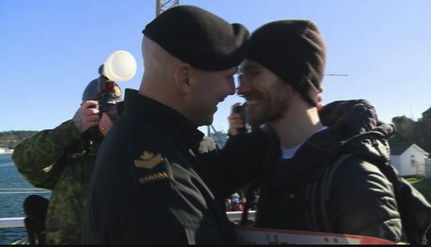 2016 – When Master Seaman Francis Legare kissed his partner Corey Vautour today in Victoria, a little bit of history was made. A time-honoured tradition at Navy homecomings, the first kiss allows one lucky sailor to be first off the ship for the long-awaited smooch with a loved one. For the first time in Canada, the happily reunited was a male same-sex couple. As the crowd cheered, Legare stepped off HMCS Winnipeg and greeted Vautour, who was carrying a handmade sign saying ‘Welcome Home Sailor’, with a kiss and huge embrace. While the first kiss has happened between two women in the Canadian Navy before, this is the first time it has taken place between two men. Legare, who is originally from Quebec, bought tickets for the draw that decides who gets the first kiss and to his surprise, won. "I just bought a ticket because all the money goes to charity, I wasn't thinking I was going to win," said Legare, who was away for almost nine months. "I think it's wonderful, the Canadian Armed Forces embraces people whatever their preferences are," said HMCS Winnipeg Cmdr. Jeff Hutchinson.
[{(o)}]|[{(o)}]|[{(o)}]|[{(o)}]| [{(o)}]|[{(o)}] |
